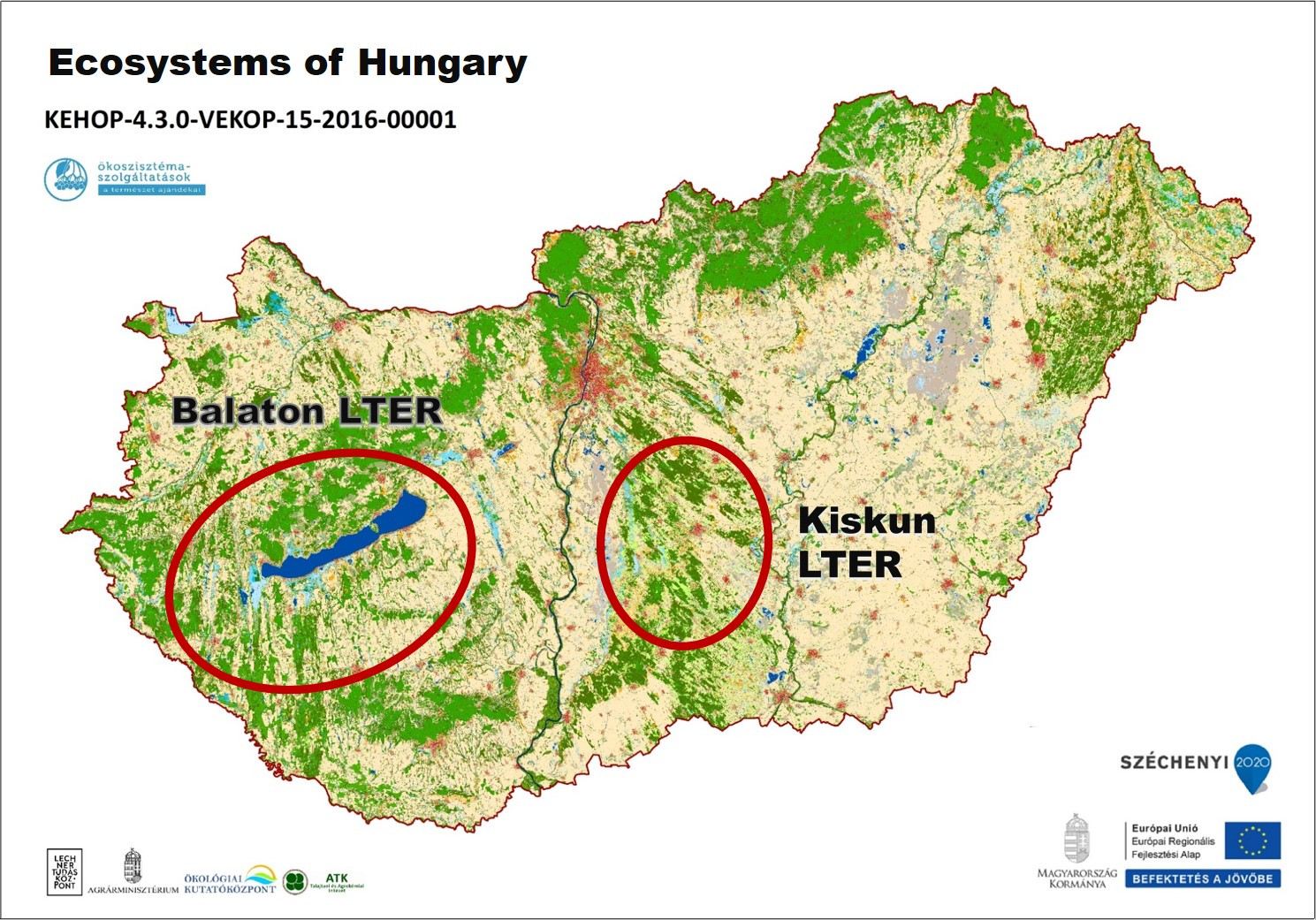Vision
LTER Hungary should contribute to teh improvement of the quality of life by means of long-terem and complex ecological and socia-ecological research at local, regional, continental and global scale
Aims
The network aims to understand a wide range of ecosystem processes at different spatial and temporal scales and to generate broad ecological and socio-ecological knowledge through long-term interdisciplinary research, information synthesis and theory development. The living environment is primarily shaped by humans and has an impact on the quality of human life, therefore changes in the living environment and the underlying ecological processes are studied embedded in the socio-ecological environment, in broad national and international collaborations. The Hungarian LTER network is part of the European eLTER infrastructure, which is in the preparatory phase, and founding member since 1995 of the International Long-term Ecological Research Network (ILTER).
Activity
The Hungarian LTER network carries out long-term and complex ecological and socio-ecological studies in the Kiskunság region and the Lake Balaton catchment in several sample areas through monitoring and field experiments.

Locations
In the Kiskunság region, field research is carried out at the Fejes-tanya (Fejes Farmhouse) research station of the Centre for Ecological Research in Fülöpháza, and in the case of Lake Balaton at the Balaton Limnological Research Institute (see relevant menu items). The infrastructure is partly located at the field sites, in the form of permanent sampling sites, in-site instruments and data collectors, and experimental equipment. Sample processing is partly carried out at the research station and partly at the premises of the host and partner institutions. An important element of the RI is the knowledge base maintained by the host and partner institutions, which is the result of many decades of research work at the field sites.
Main research themes
- Climate change and land use change
- Biodiversity - change
- Material flows
- Ecological restoration
- Ecosystem services
- Building the science-society interface
